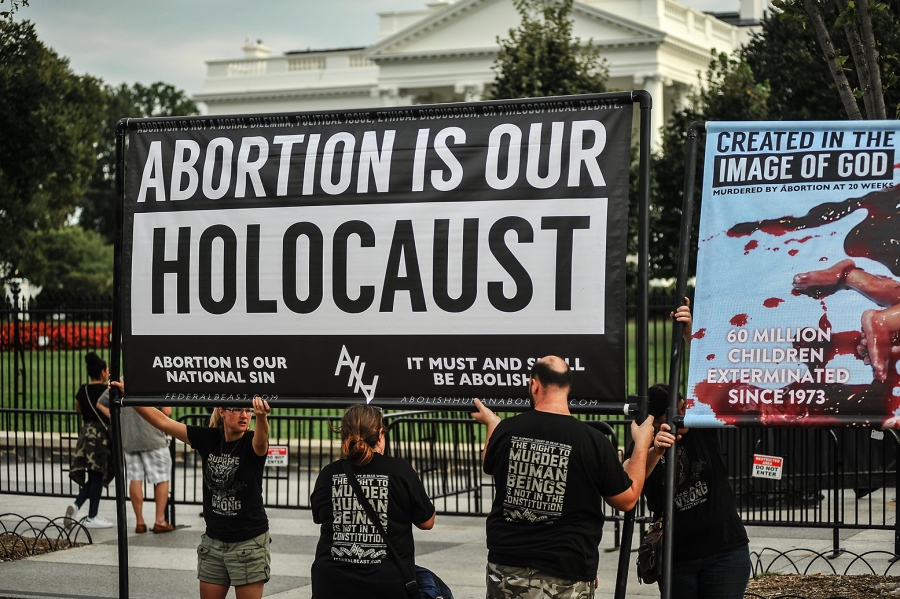Most people would probably agree that if I made someone addicted to a drug like heroin deliberately and then locked them in a basement room without heroin, leaving them to experience the suffering of withdrawal, squirming in deprivation, that would be unethical, I’m making them suffer by creating an addiction and leaving them to starve, I should have just not done that.
Now let’s say hypothetically I had desire serum – not heroin, it’s just liquid that contains any possible random desire one could think of.
Some trivial, like the desire to eat spaghetti with tomato sauce, some unrealistic, like the desire to transform into a different animal or travel back into the past, some that would require hurting others in order to fulfill, like the desire to rape and torture for gratification.
I take that stuff and inject it into people in their sleep without knowing their life circumstances, gambling with how this will affect them in the future. Perhaps they wake up the next day craving a certain type of meal, perhaps they will crave to live in a different country, perhaps they will crave to become someone they are not or travel into the future, perhaps they will crave to rape a kitten with a sharp object – I don’t know.
Would that be ethical? I think the answer is no.
And that in a sense sums up why I’m opposed to procreation, reproduction of conscious life. A conscious lifeform is essentially a desire machine – a pleasure addict. We have to chase pleasure/relief, or we are subjected to the alternative of suffering/harm, having a child is creating a slave to pleasure.
Eat or hunger.
Drink or thirst.
Shit or constipate.
Masturbate or become sexually frustrated and tense.
Socialize or get lonely.
Sleep or fatigue.
Breathe or suffocate.
So on and so forth. Pleasure or suffering. More pleasure of satiation, less suffering of hunger. More suffering of hunger, less pleasure of satiation.
Fulfill a desire, like hunger, now a new one pops up, like appetite, now you have to eat dessert to avoid boredom, or in time, the old desire will simply come back and now you’ll have to eat just to avoid starvation again – we’re desire machines.
- It’s fair to say that before procreating, you also don’t know how this will turn out for the victim.
Perhaps they will largely experience trivial desires, perhaps unrealistic to fulfill ones, perhaps those that require harming someone else, so you are creating an addict to pleasure without guarantee of them always being able to get their fix, and if they don’t get it, they suffer, they are harmed, that’s how sentient life works.
No certainty how tormenting the desires will be.
No certainty how long lasting the fulfillment of those desires will be.
No guarantee the desires can even realistically be fulfilled.
No guarantee that the desires won’t require the victim to harm someone else to fulfill.
So it’s very similar to the hypothetical of desire liquid, you’re creating an addict with no guarantee that they’ll be able to get their pleasure fix to prevent them from suffering. You force a pleasure addict into an existence where there is no guarantee that they’ll be able to obtain whichever pleasure is needed to prevent painful withdrawal symptoms.
Some desires might be easy to fulfill, like the desire to eat a certain meal, some are just basic needs/wants/desires. It’s already rather high maintenance though and not every pleasure addict/desire machine gets what they need to be properly satiated.
- The desire to eat.
- The desire to drink.
- The desire for taste satisfaction (appetite).
- The desire for constant entertainment (boredom, something we deal with all the time).
- The desire for sex.
- The desire for affection, acceptance, reassurance.
But many of the desires that exist can also be hard to fulfill, require unrealistic measures to be taken, might be impossible to fulfill.
- The desire to live an unhealthy lifestyle but simultaneously stay healthy.
- The desire to travel into the past.
- The desire to travel into the future.
- The desire to have more sexual/romantic partners than you are able to find.
- The desire to be someone else you are not, alter your body.
- The desire to not decompose and rot away, although you inevitably will anyway.
And some of the desires will also necessitate harming others, making their desires unfulfilled in order to fulfill them.
- The desire to rape.
- The desire to torture others for sexual gratification.
- The desire to subjugate others to gain a sense of superiority.
- The desire to believe in religious fairytale stories (to gain comfort) that subjugate others.
- The desire to become violent towards others (aggression/anger).
Bullying, rape, serial killings – you name it.
So while you aren’t forcibly making someone addicted to heroin and then locking them in your basement room without any heroin, you are risking creating that scenario of experiencing intense deprivation, you create the pleasure addiction with no guarantee of absolute fairness, where the victim is always guaranteed to get whatever they need to avoid suffering.
You create someone with a need for movement, they desire to move their limbs, an addiction we usually just take for granted to be satiated at all times, and then they get hit by a car and are paralyzed for the rest of their life.
- But even if one desire machine/pleasure addict always obtained their pleasure fix just in time, fulfilled every desire just in time before the suffering got out of hand, without harming anyone else in the process, they still wouldn’t miss their life if you never created them, so I still don’t think they justify all the deprived, suffering addicts.
Child A is experiencing a desire for christmas gifts and is happy upon receiving gifts on christmas, child B is also tormented by such a desire and dies of leukemia before christmas, not getting their wish of a perfect christmas fulfilled.
I believe it’s within reason for me to say that if we didn’t risk creating either of these children by stopping reproduction, child A would not be trapped in some kind of pre-birth torture chamber, horribly tormented over their lack of christmas gifts, crying their eyes out over no gifts.
So why create child B? Child A would not miss happiness if they didn’t exist, so don’t risk child B.
The would-be happy ones would not miss their happiness if they didn’t exist, their addiction would not exist, so there’d be no unresolved cravings anywhere else if you simply abstain from creating the cravings in the first place, so why risk creating unhappy ones in the process? No matter how great your life supposedly is, it not existing would have not hurt you in the least.
That’s of course a huge factor here, it’d be a different story if the pleasure addiction already somehow existed outside of us here one earth and you could point me to some kind of unborn purgatory where children are already addicted to pleasure, but no, that’s not the case, procreators create the pleasure addiction from scratch.
If all desires could be fulfilled, I’d be less passionate about stopping procreation, the more desires can be fulfilled, the less harmful the act of procreation becomes, but I still believe that fundamentally a utopia is impossible – utopia means perfection, everything is perfect, this cannot be the case, to get your perfect pleasure, you still need to create the desire/suffering for it, if no one craves (suffering) the perfect meal, it’s not the perfect meal anymore.
Pleasure and suffering exist in direct comparison to each other, so if in the utopia there are higher and lower states of pleasure, then there is still suffering, the lower state of pleasure being the greater state of suffering (a little more satiated, a little less hungry/deprived) – so a literal utopia I don’t think exists in the first place.
Right now, procreation is completely reckless, it is just like injecting organisms with the hypothetical desire liquid, you’re forcing an organism to become addicted to pleasure with no absolute fairness guarantee that they’ll get whichever pleasure is needed to prevent them from suffering horribly.






